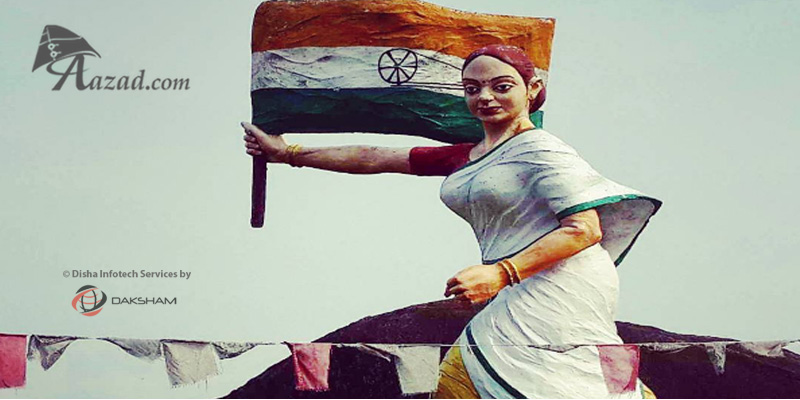- ●Breakthroughs in Prostate Cancer Treatment: What Every Patient Should Know
- ●Ovarian Cancer: The Silent Disease Women Cannot Ignore
- ●Children and Blood Cancer: Why Awareness is Crucial
- ●Women in Aviation India commences the celebration of 10th Girls in Aviation Day
- ●2025 Announcement, Appointment of New Board to Lead Hindustan National Glass & Industries Ltd
Jana Gana Mana

Just a thought for the National Anthem! How well do you know about it?
I have always wondered who is the 'adhinayak' and 'bharat bhagya vidhata', whose praise we sing. I thought might be Motherland India!
Our current National Anthem 'Jana Gana Mana'is sung throughout the country.
Did you know the following about our national anthem, I didn't.
To begin with, India 's national anthem, Jana Gana Mana Adhinayaka, was written by Rabindranath Tagore in honor of King George V and the Queen of England when they visited India in 1919. To honor their visit Pandit Motilal Nehru had the five stanzas included , which are in praise of the King and Queen.(And most of us think it is in the praise of our great motherland!! !)
In the original Bengali verses only those provinces that were under British rule,i.e . Punjab, Sindh,Gujarat ,Maratha etc. were mentioned. None of the princely states were recognized which are integral parts of India now Kashmir, Rajasthan, Andhra, Mysore or Kerala.
Neither the Indian Ocean nor the Arabian Sea was included, since they were directly under Portuguese rule at that time. The Jana Gana Mana Adhinayaka implies that King George V is the lord of the masses and Bharata Bhagya Vidhata is 'the bestower of good fortune'.
Following is a translation of the five stanzas that glorify the King.
*First stanza:* (Indian) People wake up remembering your good name and ask for your blessings and they sing your glories. (Tava shubha name jaage; tava shubha aashish maage, gaaye tava jaya gaatha)
*Second stanza*: Around your throne people of all religions come and give their love and anxiously wait to hear your kind words..
*Third stanza:* Praise to the King for being the charioteer, for leading the ancient travelers beyond misery.
*Fourth stanza: *Drowned in the deep ignorance and suffering, poverty-stricken, unconscious country? Waiting for the wink of your eye and your mother's (the Queen's) true protection..
*Fifth stanza*: In your compassionate plans, the sleeping Bharat (India) will wake up. We bow down to your feet O' Queen, and glory to Rajeshwara (the King).
This whole poem does not indicate any love for the Motherland but depicts a bleak picture. When you sing Jana Gana Mana Adhinayaka, whom are you glorifying? Certainly not the Motherland. Is it God? The poem does not indicate that. It is time now to understand the original purpose and the implication of this, rather than blindly sing as has been done the past fifty years.
So they can as well play Vande Mataram, which is a far better composition in praise of our Dear Motherland India.
Vande Mataram Controversy
Past
The controversy becomes more complex in the light of Rabindranath Tagore's rejection of the song as one that would unite all communities in India. In his letter to Subhash Chandra Bose (1937), Rabindranath wrote:
"The core of Vande Mataram is a hymn to Bharat Mata(Mother India): this is so plain that there can be no debate about it. Of course Bankimchandra does show Durga to be inseparably united with Bengal in the end, but no Mussulman [Muslim], christians and Arya Samajis can be expected patriotically to worship the ten-handed deity as 'Swadesh' [the nation]. This year many of the special [Durga] Puja numbers of our magazines have quoted verses from Vande Mataram - proof that the editors take the song to be a hymn to Durga. The novel Anandamath is a work of literature, and so the song is appropriate in it. But Parliament is a place of union for all religious groups, and there the song cannot be appropriate. When Bengali Mussulmans show signs of stubborn fanaticism, we regard these as intolerable. When we too copy them and make unreasonable demands, it will be self-defeating."
In a postscript to this same letter, Rabindranath says:
"Bengali Hindus have become agitated over this matter, but it does not concern only Hindus. Since there are strong feelings on both sides, a balanced judgment is essential. In pursuit of our political aims we want peace, unity and good will - we do not want the endless tug of war that comes from supporting the demands of one faction over the other."
Present
Muslim institutions and Vande Mataram
Though a number of Muslim organizations and individuals have opposed Vande Mataram being used as a "national song" of India, citing many religious reasons, some Muslim personalities have admired and even praised Vande Mataram as the "National Song of India". Arif Mohammed Khan, a former member of parliament for the Bharatiya Janata Party, wrote an Urdu translation of Vande Mataram which starts as Tasleemat, maan tasleemat. In 2006, amidst the controversy of whether singing of the song in schools should be mandatory or optional, no Indian Muslims did show support for singing the song.
Sikh institutions and Vande Mataram
Shiromani Gurudwara Parbandhak Committee or SGPC, the paramount representative body in the Sikh Panth, requested the Sikhs to not sing "Vande Mataram" in the schools and institutions on its centenary on Sept 7, 2006. SGPC head, Avtar Singh Makkar, expressed concern that "imposing a song that reflected just one religion was bound to hurt the sentiments of the Muslims, Sikhs, Christians and other religious minorities. The DSGMC (Delhi Sikh Gurudwara Management Committee) has called singing of "Vande Mataram" against Sikh tenents as the Sikhs sought "sarbat da bhala" (universal welfare) and did not believe in "devi and devta". DSGMC head H. S. Sarna also added that the song "Vande Mataram" had been rejected long by well known freedom fighter Sikhs like Baba Kharak Singh and Master Tara Singh.
Christian institutions and Vande Mataram
Fr. Cyprian Kullu from Jharkhand stated in an interview with AsiaNews: "The song is a part of our history and national festivity and religion should not be dragged into such mundane things. The 'Vande Mataram' is simply a national song without any connotation that could violate the tenets of any religion. But everyone has his own perception, tending to interpret any social-cultural events in terms of religion, which could harm social harmony and co-existence." However, some Christian institutions such as Our Lady of Fatima Convent School in Patiala did not sing the song on its 100th anniversary as mandated by the state.
For further details please refer to Wikipedia Vande Mataram & Jana Gana Mana
...



